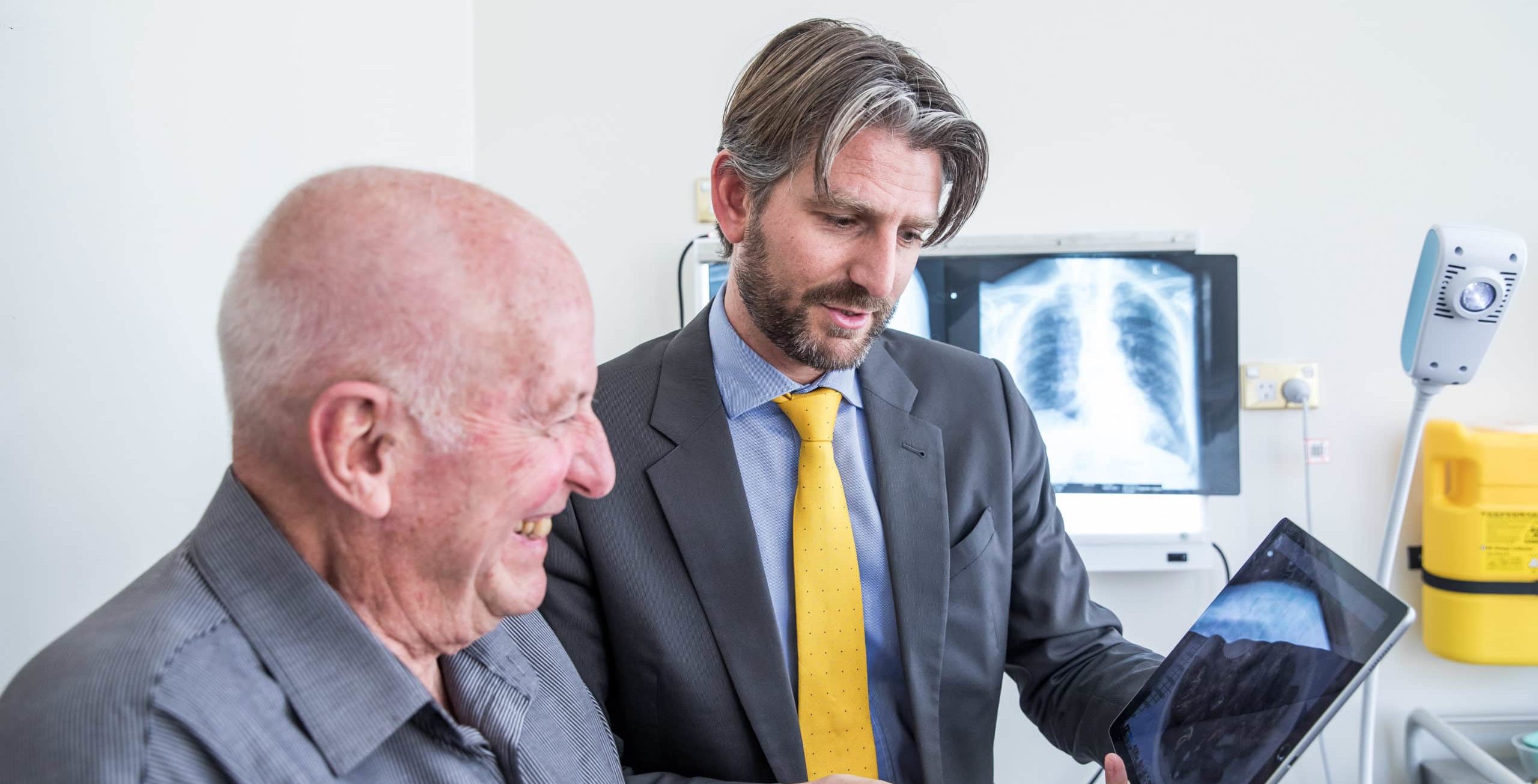If you are aged 65 and above – or have loved ones in their senior years, it may be time to consider seeing a Geriatrician.
Geriatricians are specialised physicians who diagnose and treat conditions and diseases affecting people as they get older.
Working together with family members and other medical practitioners, geriatricians take a comprehensive view of a person’s overall circumstances and offer proactive support to enhance their health, well-being, independence, and quality of life.
1. The mind
Dementia
It’s commonly perceived that as we get older, it’s normal for our memory and thinking to deteriorate. This is actually incorrect and a misconception in our communities.
Whilst some diseases do affect memory, deteriorations may be reversible. Improvements may be possible with the right assessment, diagnosis and interventions.
Dementia is a group of diseases characterised by permanent changes in thinking. Whilst there are many types of dementia, some changes include short-term memory loss (eg Alzheimer’s), personality changes (eg vascular dementia) or speech difficulties (semantic fronto-temporal dementias).
Changes in cognitive function can be insidious and progress slowly, thus may or may not be noticed by the person living with the issues, or by family members and friends.
Geriatricians may conduct several assessments on their patients to determine whether or not they have a problem or even a pre-dementia syndrome.
Pre-dementia is especially important to diagnose as there are potentially brand new treatments to slow deterioration to dementia.
We work with patients, families and carers to develop strategies to help manage or improve a person’s memory and thinking, to help improve the way they function in their daily life.
This includes non-drug strategies that often will have a greater influence on health than drugs alone. This is why we integrate our medical recommendations with options through our extended healthcare staff and exercise and group class options at Brellah facilities.
Depression
As we age, changes occur in the brain that may make us more prone to feeling down, or less able to respond positively to life’s challenges.
This can start a vicious cycle that leads to poor or excessive sleeping, appetite changes, weight loss or becoming sedentary. It can progress to depression.
Depression can also be linked to other conditions such as dementia and Parkinson’s disease.
Some of the most effective interventions may not involve drugs at all.
As geriatricians we work with patients and their families to determine the underlying causes of the depression. The ultimate aim is to help put them on the right road to recovery and achieve positive outcomes in mood and behaviour.
Personality changes
Sometimes we may notice personality changes in ourselves or loved ones such as resistance to doing things, not willing to try anything new (apathy), behaving out of character or being more abrupt or inflexible.
There are several medical reasons why a person’s character changes as they age. These include damage to the brain after a stroke, dementia, or the effect of alcohol or medications.
Given the many potential causes leading to personality changes, it’s important to determine the underlying reasons for the changes and treat those, rather than focusing solely on dealing with the symptoms.
Research indicates that non-drug treatments may offer the best outcomes with the least risk. There may be a place for medications, though only after appropriate non-drug strategies have been trialled.
Exploring the practicalities of these non-drug therapies allows us to tailor the right approach to keep you and those around you safe and independent.
2. The body
Pain
Pain can become a part of life as we get older. Treatment requires an understanding of the type of pain felt, the effect of that pain on the person’s life and often a clinical examination.
With a confirmed diagnosis, we then explore the options for treatment.
Chronic pain (lasting more than three months) can be difficult to treat. Therefore it’s important to get a correct diagnosis so that treatments don’t bring harm in the long-term.
Setting achievable goals for pain management is also important when it may not be possible to completely cure people of their pain.
Strong painkillers may become addictive and result in side effects, which can pose new challenges such as increased risk of falls.
Whilst medications such as opioids have a place in the treatment of pain, management of chronic pain is best achieved with a combination of non-drug and drug therapies.
The management of chronic pain is a journey. We work with our patients, their GPs and sometimes specialist pain doctors over time to work out the best approach to meet expectations for comfort and quality of life.
Weakness and falls
Falls resulting from muscular weakness or frailty can be one of the greatest risks to an older person’s independence and health.
For example, a mild fall can result in a fractured hip, which may require an operation and affect a person’s ability to live independently at home and pain-free.
Research shows that getting weaker does not have to be part of the ageing process. As the saying goes “Use it or lose it” and regular exercise and nutrition can help reduce muscle loss, weakness and frailty.
This is almost the single most important aspect of maintaining health that can optimise function and allow continuity of independence and quality of life as we all age.
We appreciate that recommending exercise is easy but doing it is hard.
As geriatricians we work with our patients, families and specialists such as Exercise Physiologists to help find the best options to help our patients become stronger, fitter and happier versions of themselves.
Sleep, bladder and bowel problems
Many seniors have had sleep, bladder and bowel issues for years – and never sought help.
We all know about the positive effects good sleep has on our mental, emotional, and physical health and believe the most beneficial solution is rarely sleeping tablets. These can worsen sleep quality in the long term and may result in negative side effects such as increasing the risk of falls.
Our approach is to provide practical strategies to help improve the quality and length of sleep.
Bladder problems can lead to leaking and the constant urge to go to the toilet. A thorough history is needed to understand why these problems exist so the right solutions can be offered.
It’s important to choose treatments carefully as some medications can result in memory loss, mimicking dementia symptoms.
Similarly, bowel issues can be an annoyance with the need to constantly be in proximity to a toilet, having to use pads or feeling constant tummy pain.
Managing bowels can be tricky and no two people are the same. Often, stopping a medication or being more physically active can help. Sometimes, additional medication is needed.
3. Medication strategies
Rationalising medicine
Some medications may cause harm as we get older, or may no longer be needed in the same doses. Some may no longer be needed at all.
Sometimes the pills we take can react with each other. These interactions are more likely with the higher number of medications older persons may be taking.
Understanding this goes beyond looking at the reactions to medications, but rather considering whether the medications are still beneficial and necessary.
One of our most sought-after services is a medication review where we consider which drugs are working and which can be stopped or reduced, whilst aligning the plan to meet the patient’s goals in life.
These decisions are complex and can impact health and quality of life. Therefore we work with you and your other specialists to determine the right way forward.
Alternative approaches
Other potential therapies for medical problems include medicinal cannabis for pain, chiropractic therapy, virtual reality technologies, herbal remedies, acupuncture, steroid injections for arthritis, nutritional therapy, exercise programs and tai chi to prevent falls.
We pride ourselves on being up to date with the latest news and evidence for treatments and therapies which can affect our patients.
In considering new and traditional options, we work closely with you to understand your goals, to help you make an appropriate decision for your health.
4. Living independently
Future planning
Death is one of life’s certainties. Whilst planning potential outcomes can be confronting, it’s extremely helpful and beneficial for older persons, their families and friends.
Many people plan their wills and funerals, but few nominate the right people to make decisions on their behalf, before or after a serious medical illness such as a stroke.
Examples include a Power of Attorney for financial affairs or an Enduring Guardianship for medical and residential decisions.
Considering how to deal with potentially life-limiting or life-threatening medical problems, and how we want to live the rest of our lives is also important. This may include a reflection on what we would want from future medical and nursing care.
Effective planning is best achieved by speaking to those you trust, with advice from your doctors to guide you on what your decision would be for your or your loved one’s future.
Home services
Living in our own home is important to many of us, and the burden of care can impose stress on family members and everyone involved.
Many of services exist to help stay-at-home seniors with cleaning, shopping, dressing, meal deliveries and day respite for frailty and dementia.
Accessing these services can take time if through the My Aged Care system which is complex to navigate.
Often, a comprehensive assessment by a geriatrician can help the review process for government services such as My Aged Care and the Nationals Disability Insurances Scheme.
Care homes
As the risks of staying at home increase, contemplating a move to a residential aged care facility or nursing home can be confronting and emotional.
Whatever the need to leave home, we understand the uncertainty and reluctance of moving into a care home.
There are many wonderful care homes in Australia, who prioritise the comfort and happiness of their residents. They offer around-the-clock care and the opportunity for socialisation which can have a positive benefit on depression and bereavement.
Another significant benefit is minimising the risk of falls with the set-up of the home and providing ready access to a physiotherapist to help improve strength and balance.
It’s important to understand the culture and standard of care of the home to get a sense of whether you or your loved one will be happy living there.
Our role is to help guide you with options and assist with any transition, which can be challenging for all involved.
5. Carer considerations
Carer stress, guilt and respite
The pressure of work, personal health and immediate family priorities can make caring for senior family members difficult.
In addition the feelings of guilt of not always being available for loved ones may impact carers significantly.
We work with our patients and their family members and hold open discussions about their goals to help make realistic and practical plans for the future. This includes dealing with emotions that can delay decision-making.
A collaborative support team with the best interests of our patients in mind
Our approach to working with patients is a long term one – collaborating with family members and other members of their medical team relationship to deliver the best possible outcomes for the best quality of life.
To make an appointment to see Dr Hohenberg, please obtain a referral from your General Practitioner or other registered health specialist.
Brellah Caringbah
This article is for information purposes only and is general in nature. It does not constitute medical advice, is not tailored to your personal circumstances and you should seek your own medical advice with regards to options best for you.
By Dr Mark Hohenberg, lead geriatrician at Brellah Caringbah.

